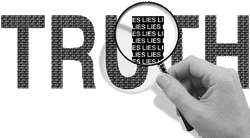
Here's what I've been thinking about lately: a writer friend of mine is revising a novel. It addresses a difficult and painful subject - sexual violence - and tries to reach some kind of happy outcome for the characters. This friend is having difficulty, due to the temptation to bring too much reality into the book. Too many details, too many subplots, too many extraneous motivations, too much emotion that distract from the horror of the subject. Yet, the author says, all of the extras are real.
Fair enough. I don't envy the author; this is a truly challenging topic, and frankly I stay away from "real" problems as much as possible in my writing. (There's a reason I write speculative fiction, after all.) But my friend has chosen to wrestle with the subject, so I'm here to support the effort as much as I can.
And in so doing, I've been trying to articulate what exactly the role of "reality" is in fiction. My friend's novel would probably come under the genre heading of Women's Fiction. The Romance Writers of American define women's fiction as "a commercial novel about a woman on the brink of life change and personal growth. Her journey details emotional reflection and action that transforms her and her relationships with others and includes a hopeful/upbeat ending with regard to her romantic relationship." OK, then. So how does reality figure into the plot, the setting, the dialogue, and the character development?
That question led me to a more fundamental one: how does reality figure into any novel? And in pondering, I've deduced the following answer: it doesn't. Somewhere on my bookshelf of "respectable" literature is a little tome left over from my expensive undergraduate education, called Resisting Novels: Ideology and Fiction by Lennard J. Davis. There's more to it, but the gist is that novels are in essence, lies. They are a structure of ideology, carefully crafted to subvert the reader's hold on his own reality and ensnare him in another world order.





 RSS Feed
RSS Feed